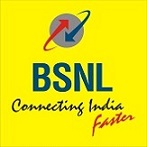BSNL and Viasat Launch India’s First Satellite-to-Device Service to Enhance Connectivity in Remote Regions
BSNL, India’s state-owned telecom giant, has teamed up with global satellite communications company Viasat to launch an innovative satellite-to-device service. This new satellite messaging service aims to address one of India’s longstanding connectivity challenges—providing uninterrupted access to communication networks in the country’s most remote and rural areas. Known for its commitment to bridging digital divides, BSNL’s partnership with Viasat represents a major leap in bringing reliable messaging and basic connectivity to regions where traditional network infrastructure struggles to reach.
How BSNL’s Satellite-to-Device Service Works
This satellite-based service connects directly to mobile devices without the need for cellular towers, an infrastructure limitation that has historically left many rural and remote areas disconnected. Viasat’s technology leverages satellite signals to establish direct communication with mobile devices, making it a game-changer for residents, travelers, and emergency responders in these challenging locations.
The service will initially provide messaging capabilities, offering essential connectivity for sending text messages in low or no network areas. In the future, BSNL and Viasat aim to expand capabilities to include data services, further improving communication standards in these underserved areas.
The Need for Satellite-Based Connectivity in India
India’s varied geography poses unique challenges to traditional network providers, making it difficult to install cellular towers in mountainous or densely forested areas. As a result, regions across the Himalayas, desert expanses, and the Andaman and Nicobar Islands have faced limited connectivity options. BSNL’s satellite-to-device service could open a new era of digital inclusion for these communities, allowing people in remote locations to stay connected in critical situations.
For India’s emergency response teams, this service is especially significant. In times of natural disasters, such as floods or earthquakes, when traditional networks may be down, satellite messaging can provide a lifeline, allowing people to reach out for help or stay updated with emergency information.
BSNL and Viasat: A Strategic Partnership
BSNL’s collaboration with Viasat brings together local expertise and advanced global satellite technology. Viasat, a well-regarded name in satellite communications, offers high-capacity internet services to various industries, including aviation and government sectors. By combining BSNL’s extensive reach within India and Viasat’s technical prowess, the partnership aims to offer not just an improved user experience but also a sustainable solution to India’s connectivity issues.
Additionally, this service aligns with India’s broader digital ambitions, complementing initiatives such as the “Digital India” campaign, which seeks to enhance the country’s digital infrastructure and expand connectivity to underserved areas. BSNL and Viasat’s satellite-to-device service thus represents a valuable addition to this mission, addressing gaps that traditional telecommunications alone cannot fill.
Future Implications and Potential Expansion
While the service initially supports only text messaging, there is significant potential for expansion. Over time, BSNL and Viasat plan to integrate data services, enabling internet access in areas with no existing infrastructure. Such developments could transform rural education, healthcare, and commerce, allowing communities to connect with digital resources previously beyond their reach.
The broader implementation of satellite-based connectivity also presents an opportunity for India’s disaster management framework. By providing real-time communication during emergencies, the technology could play a pivotal role in saving lives and coordinating relief efforts in remote regions where traditional telecom infrastructure is limited.
Security and Privacy Considerations
With satellite-based technology gaining traction, BSNL and Viasat are likely to prioritize security and privacy in service deployment. Ensuring secure communication channels and data privacy will be critical as this technology scales. BSNL’s role as a state-owned entity further emphasizes the need for data protection and compliance with national guidelines.
Conclusion
BSNL’s new satellite-to-device service, powered by Viasat, is poised to transform the landscape of connectivity in India. By extending communication capabilities to remote areas, the service offers a lifeline to communities previously isolated from the digital world. While messaging is the primary feature now, future enhancements to include data services could further bridge the digital divide, reinforcing BSNL and Viasat’s role in India’s digital future. This initiative underscores the potential of satellite technology to meet the diverse connectivity needs of a geographically complex country and bring essential services to the doorstep of all Indians, no matter where they are located.

